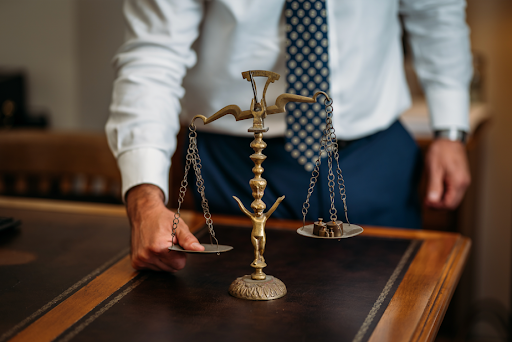The Game Time Decision
This past week, I saw just how hard this decision can be. I was in Wrentham District Court with Chris when he got a call–a colleague told him one of his clients was being transported to court that morning for an arraignment. The client had a warrant out for her arrest on a couple of assault and battery charges, one for domestic violence and one with a deadly weapon. He couldn’t make it to Wrentham to handle the hearing–Chris was being called in as the ringer.
Chris and I went down to the lock up immediately. The lock up is where defendants already in custody are held before and after they appear in court–it's like a mini jail. I asked him whether we were going to look at the client’s case file first, but he told me the most important thing at the moment was that the client felt comfortable, knowing that at least for the short term, her future was in his hands.
The client we met in the lock up was not at all who I expected to see in for assault charges. She was a young girl, small, pretty, and respectful even amid her distress. The two of them discussed the case, he shook her hand, and we went back up to the courtroom.
The Back and Forth
Chris went to work to figure out what the young girl’s options were. As soon as he looked at her file, which included a record three pages long consisting of drug charges, restraining order violations, and now the assault and battery charges, he told me the prosecutor was going to file a motion to revoke bail. Essentially, the prosecutor is going to argue that this girl is dangerous and needs to await trial away from the public and the victim of her alleged crimes.
We went to talk to the prosecutor, who told Chris that was exactly what he was going to do. When Chris asked about a plea, he said he would drop the deadly weapon charge, but not the domestic.
Only a year of probation might sound more appealing than sitting in jail for a month, but Chris knows that probation would mean a
long
rehabilitation program, mandatory drug testing that could lead to violations, new charges, then more probation. She might get tied to the court system for the next
few years. As crazy as it sounds, a month in jail is the better option here.
After a long conversation, she agrees she should go to trial. We go back up to the courtroom to wait for her case to be called. Then, the court marshal motions to Chris to go back down to the lock up–she’s changed her mind. We go down, she tells him she can’t go back to jail, Chris tells her he understands and respects her decision, and we go back up to the courtroom. This sequence takes place about three more times–trial, no trial, trial, no trial.
How Do You Make the Choice?
Usually, your attorney will be able to see that one bad option is better than the other.
The Benefits of a Plea Deal
Plea deals provide a defendant
more
certainty because a tougher sentence could be issued at trial than is offered in a plea.
The Benefits of a Trial
A trial, on the other hand, is the only way to get justice if you’ve been wrongly accused. Moreover – even if the defendant committed the crime just as the prosecution says – that doesn’t mean the prosecutor will have all the evidence it needs to prove the charges on the day of trial.
The Non-Answer to an Impossible Question
The question truly has no answer. That’s why, at the end of the day, it's entirely the client’s decision. An attorney can assist in explaining a client’s options and managing strategic legal decisions, but in the end, their job is to carry out the
client’s wishes, not their own.
This is also why the 6th Amendment provides all criminal defendants the right to an attorney. It’s hard to be logical amid so much fear and anxiety. A lawyer can take the emotion out of the decision.
So, the only solution, really, is to hire an attorney that understands the system and cares about your outcome. There is never a right choice, but there are certainly smarter ones.
Epilogue: In the end, the client accepted Chris’ advice and scheduled the matter for trial. The charges were later dismissed with the prosecutor was unable to produce all the evidence necessary to prove the case.


